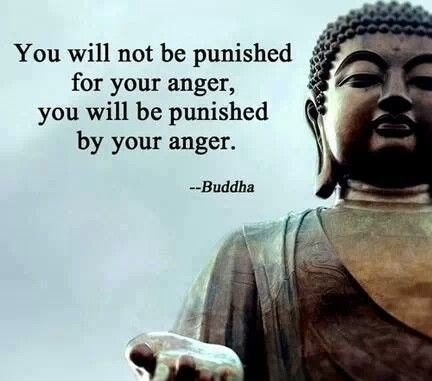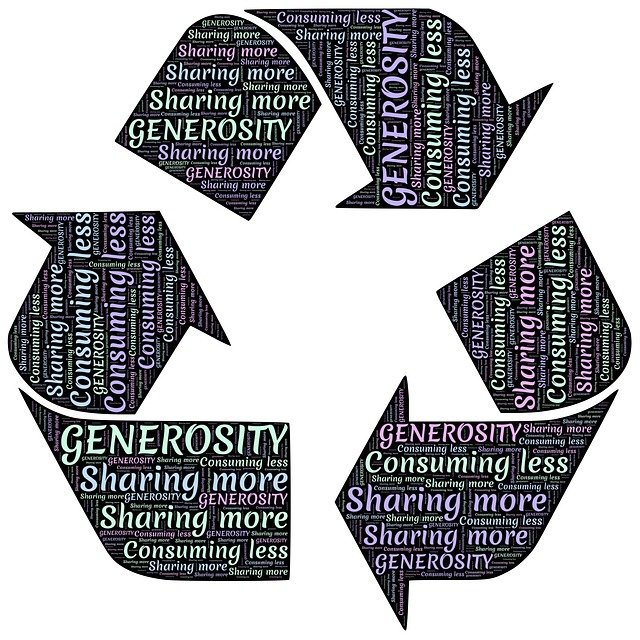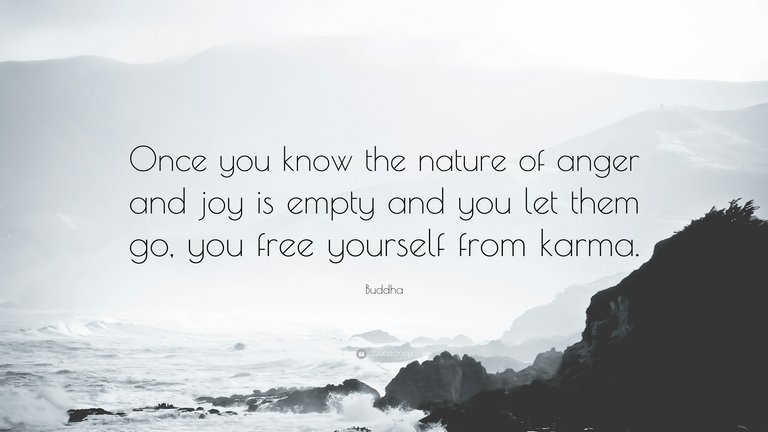
As humans our minds, as it was discovered, operate in a predictable way and with this knowledge we can be equipped to venture into our own minds just like they did, purify it and release ourselves from suffering. It is quite fascinating as I have studied, learned and then sat and observed my mind to see the stories that seemed so real and important dissolve into emptiness. This takes work but I can attest just from my sitting this morning how fun this gets once those stories start disappearing. In terms of the family, "issues" anything that has been inherited and quarrels it is all as I said quite predictable and there is a map pointing the way out of identifying with these matters that cause a false self to arise and be held up by the story it is creating. Is it easy? No! In the last essay Buddhism: Karma and The Family - Part 1 we took our first look at The Six Perfections But it does get easier so let's look at them again because committing these to our consciousness with intention will inform our mindfulness and actions. Again they are:
- Dāna pāramitā: generosity, giving of oneself
- Śīla pāramitā : virtue, morality, discipline, proper conduct
- Kṣānti pāramitā : patience, tolerance, forbearance, acceptance, endurance
- Vīrya pāramitā : energy, diligence, vigor, effort
- Dhyāna pāramitā : one-pointed concentration, contemplation
- Prajñā pāramitā : wisdom, insight
Additionally there are for more that are fuel for our actions and they are:
- Upāya pāramitā: skillful means
- Praṇidhāna pāramitā: vow, resolution, aspiration, determination
- Bala pāramitā: spiritual power
- Jñāna pāramitā: knowledge
Let's begin to explore these and see how these Six Perfections would be applied.
The Perfection of Dāna pāramitā: generosity, giving of oneself

One way to begin is to always give in the spirit of dana and we are immediately released from possible negative repercussions. If we don't have the means to give freely we should follow the path of wisdom which for starters would mean never give out of guilt. Here is an example of why meditation is so important: we are faced with a situation that requires some financial means to be resolved and it is causing us stress. By becoming skilled at observing our minds we can begin to follow the thought pattern that is causing the negative emotions. This can be tricky when we are still practicing and that is why we always have compassion for ourselves first. We are not perfect. But with practice of mindfulness we will begin to see how we can practice generosity fully and freely. We look for situations where we can operate in the spirit of dana and as we do we exercise our ability to do it more and more. Whatever happens on the level of form we will begin to understand that we can release whatever story we are attaching to the situation and resolve it with wisdom. And that is true dana in the realm of family karma. And of course, in all our affairs. As the mind likes to run away with itself we gently keep veering it back reminding ourselves of our ultimate goal which is enlightenment and not just for ourselves but for everyone.

The Perfection of Śīla pāramitā : virtue, morality, discipline, proper conduct
If we are becoming wholly concerned with our own conduct we will have less time to be so worried about the conduct of our family members. For realz. I mean this makes so much sense doesn't it? What a relief. When we start committing to each element of Śīla pāramitā and we will have a full plate integrating very consciously virtue, morality, discipline and proper conduct. Not saying we are misbehaving I'm just saying we are going to be busy with this! This is not a list of sinful ways to avoid like The Ten Commandments or anything like that. They are a guide that we refer to as we develop ourselves on the path to enlightenment. By following The Noble Eightfold path and engaging in mindfulness we most likely will naturally develop these habits of virtue. We give it a nod and little by little living these values will cultivate a selfless compassion within us. It's helpful to have structure as we beautify our wild creative minds.

The Perfection of Kṣānti pāramitā : patience, tolerance, forbearance, acceptance, endurance
As we are busy transforming ourselves and having compassion for ourselves we will come to develop patience and tolerance for others. Nobody is perfect and everyone is suffering to some degree. We begin to see this clearly. This perfection of patience is a very interesting practice.
It literally means "able to withstand." It is said there are three dimensions to ksanti: the ability to endure personal hardship; patience with others; and acceptance of truth. Thoughtco.com
As we observe our minds and see what is in there we have to first accept it. This part of the process is the most difficult because it is difficult sometimes to accept that we are judgmental or selfish. I found myself walking around with some of these thought structures and they were like an annoying fly that I could not swat away. Through our understanding that all humans have these base, negative attitudes along with the positive ones that we experience through practice and mindfulness over time we can watch them while we sit and see them fly away as if we opened the window and let them out. When we can do this for ourselves we automatically begin to be able to posture ourselves in patience and compassion for others. It is quite remarkable.
The universal truths that we come to accept are The Four Noble Truths:
The truth of suffering (Dukkha)
The truth of the origin of suffering (Samudāya)
The truth of the cessation of suffering (Nirodha)
The truth of the path to the cessation of suffering (Magga)
Or more succinctly put:
we crave and cling to impermanent states and things, which are dukkha, "incapable of satisfying" and painful. ~Wikipedia
Also, our mortality, the fact that we are all going to die. This is a big one for most people and working to remove the clinging to the fear of death is a surefire way to stop focusing on what we think is so wrong with other people. We are all going to die. The realization of this truth, is a major milestone on our path to freedom. Once fully accepted this leads us to realize the truth of the illusory nature of what we perceive known as maya. We can rest in these truths and a lot of issues with others that we thought were so important we will soon see do not even exist.

The Perfection of Vīrya pāramitā : energy, diligence, vigor, effort
Rather than finding fault with our relatives we can shift our focus to living our own lives with vigor and effort rather than laziness as well as avoiding seeking excitement. This is where we take a mature, dignified and just approach to things. We are also mindful of the ways we seek to cope with life such as over excitement and should replace these tendencies with diligence. Just looking at the ways we rise into over excitement as a distraction will give us plenty to work with as we work to move beyond the focus of perceived problems.
If we are not living in such a way that we feel energized and infused with right effort we should do all we can to change that. This this can be done in just about any situation and will certainly be taking up so much our mental and emotional energy to be a force for good. This may be our career, social justice, community involvement or really any activity we undertake we now approach with an attitude of diligent effort. This is an energizing way to live and when we do we transform ourselves and our environment. This is our work and it is wonderful.

The Perfection Dhyāna pāramitā : one-pointed concentration, contemplation
I can't really pick a favorite because each one of these is awesome but I just HAVE to tell you how amazingly fun it is when you become skilled at one-pointed concentration and contemplation and watch your mind literally be blown. As fun as this is, liberating really, it is the foundational aspect of the cultivation of wisdom. As our stories fall away and we are left with emptiness we create the conditions in which enlightenment can be realized. Through becoming skillful at concentration we begin to have insight arise as thought structures fall away. The way we can understand this is the difference between thinking and when we are engaged in creativity and wonderful, new ideas seem to rise up out of nowhere. This is very comparable to experiencing insight and gain precise clarity which rises above perceptions which were previously illusion filled. We are beginning to see ourselves and others clearly and as a result let ourselves off the hook and by extension others. By now we see so many of the things we thought we needed to work through regarding our family dynamics may just fall away. For the things that seem very tough to accept or let go we can seek out healing assistance through professional help as in the previous essay. By the time we have reached this stage we are well beyond the previous states of judgement, worry, resentment or anger and on our way to wisdom which is the next Perfection.
I hope that this has been able to take you on a journey down the path and see how these discoveries of the limitations of the conditioned mind can be worked through and risen above. It takes work but it is so worth it and in my opinion is the most important work any of us can do. Again, our job is not to try and perfectly adhere to the perfection. It is to do our best and to always have compassion for ourselves first in relation to whatever our present moment experience is even if we can't let go of our anger or resentment. In the next installment we will finish the last of Six Perfections and go on with the extra four which were later added as they were discovered to be complimentary to this process and get a bit more specific on how to handle family members without falling into idiot compassion when in actuality we may need to be distancing ourselves. Fascinating.
What do you think?

@soulsistashakti is a musical artist and writer based in NYC as well as a practitioner of Buddhist teachings. You can check out my music on my FB artist page at https://www.facebook.com/soulsistashakti
Images pixabay.com, giphy.com and quotefancy.com
Recent Posts
Meditation and Buddhism - The Fascinating and Awesome Power of Om Mani Padme Hum
The Magic of Flow and Why Hacks Are Bunk - Part 2
Buddhism: Trauma, Psychedelics and Meditation
Buddhism: Karma and The Family - Part 1
Buddhism: What is Karma?
I like your elaboration on Kṣānti pāramitā, and I like the notion of it being a positive virtue to move towards, rather than something to cease. I struggle with my very active toddlers, and at my high points am able to be patient and accepting. They seem to be ideal instruments to test my resolve and further my practice!
Thanks for your post.
Cheers,
@dcj
Thank you for sharing your perspective @dcj Thich Nhat Hanh says if following the dhammapada is causing us strife we are doing it wrong :) Besides the fact that children dont always do what we say - they do what we do! So, with this in mind we have positive motivation for our efforts to work towards cessation of our own suffering. Its a lot easier than being frustrated with others once we get the hang of it.
Wow! A super detailed study. Really impressive! I have to read this again as there is lots to absorb, but so true about anger poisoning the angry one and the reality that our imminent death makes every little thing seem not so important after all.
Pair that with meditation and regular study and it's a wild turbo charge into emptiness :)
Anger is a bad energy ! We suppose to control it !! Meditation is a best way to control your anger !!
Anger can be used for good if channeled in the correct way. Thich Nhat Hanh wrote a book about it called Anger : Wisdom For Cooling the Flames
Thank you this was a very positive post for me- I needed some of this info! I'll be following your blog. I'm also writing on meditations and mindfulness. Feel free to check out some of the meditation techniques on my blog, and if it interests you follow- we can start to build up the mindfulness community on steemit :-)
Hi thanks for stopping by :) You're welcome and I think that's a great idea. I hope more meditators connect on here. I'll check out your blog.